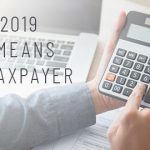How Council Tax Works
Most of us will pay Council Tax but if you’ve ever sat there and thought….”what is Council Tax and why do I pay it?” then this blog is for you!
I noticed many people either didn’t know what Council Tax was or how it worked so I thought I’d write an article just outlining the key information you need to know as a UK Citizen about your Council Tax.
What is Council Tax?
So first things first! What is it? Well in simple it’s a local tax system in which your local authority (Council) will collect tax from you when you live in a domestic property. Business properties pay a similar tax which is known as ‘Business Rates’ but Council Tax is purely for ‘normal’ households.
This tax is then spent by your local council to pay for things within your local area like:
- Police Service
- Fire and Rescue Services
- Waste Disposal
- Fixing and Upkeep of Roads
Valuation Bands
Council Tax is paid according to which ‘band’ your property is valued under. Your property will automatically be given a valuation band according to the VOA (Valuation Office Agency) and these bands are as follows:
| Valuation band | House Values |
|---|---|
| A | Up to £40,000 |
| B | Over £40,000 and up to £52,000 |
| C | Over £52,000 and up to £68,000 |
| D | Over £68,000 and up to £88,000 |
| E | Over £88,000 and up to £120,000 |
| F | Over £120,000 and up to £160,000 |
| G | Over £160,000 and up to £320,000 |
| H | Over £320,000 |
Every year your local Council will set the rate for each valuation band – you can find these rates out by checking online at your local Councils website or by contacting them directly.
If for whatever reason you feel your valuation band is wrong, you can appeal against your band and challenge that valuation. If this is the case be sure to go here – https://www.gov.uk/council-tax-appeals/challenge-your-band
Exempt Properties
There are certain properties which do not have to pay Council Tax:
- If the property is condemned
- Any property which has been re-possessed
- If the property is now unoccupied because the person now lives somewhere else because they need to be cared for (e.g. care home etc)
- If the property is now unoccupied because the person who lived there has gone to care for someone else
- If the property is only lived in by students or Foreign Language Assistants
- If the property is a holiday caravan or boat and is situated within a property/land where council tax is already paid
- If everyone living in the property is under 18 years of age
- If everyone living in the property have severe mental impairment
- If the property is technically a self-contained unit (e.g ‘granny flat’) and the person who lives in it is being cared for by a relative who owns the main property
Discounts on Council Tax
There are also exceptions which allow certain people to gain discounts on paying the full amount of Council Tax:
- If you are 17 years of age or under
- If you are a prisoner or are in detention awaiting deportation
- If you are ‘severely mentally impaired’
- If one of the residents is a full-time student completing a ‘qualifying course of education’
- If you are a non-British Citizen who isn’t allowed to work in the UK or claim benefit because of immigration rules
- If you are a young person on a government training scheme/apprenticeship
- If you are a long-term hospital patient or care home resident
- If you live in a hostel that provides care or treatment or you are in a bail or probation hostel
- If you are a care worker living in the property
- If you are living a hostel or shelter (e.g. Salvation Army)
- If you have left school or college under the age of 20
- If you are aged 18 or under and someone is entitled to Child Benefit for you
- If you are a member of a religious community
- If you are a member of an armed force and simply visiting – Your dependants are disregarded as well
And that is pretty much all the key pieces of information you need to know about Council Tax! If any of the above discounts or exceptions apply to you and you are paying Council Tax then please contact your local Council immediately to ensure you’re not paying more than you need to.














Share On